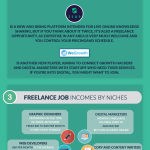Command structures are a vital part of efficient and effective policing: the glue that holds everything together. There’s never been a more important time for good officers to make it up through the ranks, gain extensive knowledge of the force and lead a change in policing culture.
Study
It’s no secret that the US Police force is facing a staffing crisis across the USA. In a PERF survey of 400 police departments, 66 percent of police departments reported a decline in applications. The same survey also highlighted serious difficulties when it came to staff retention, reporting that over a quarter of officers leaving the force had been on the job for less than a year.
Foundations: police training
Everyone has to start somewhere and if you’ve made it this far, you’ve probably already demonstrated you have the skills and credentials to make waves in the force. Basic law enforcement training will last for about six months. During this time, you can expect to learn everything you need to know to go out into the field and serve the community.
As well as essential practical skills like firearms training, the basics of crime scene investigation, pursuit driving, and first aid, there’s an increased emphasis on ‘soft skills’. The cops of tomorrow are working on anything from improving their communications and interpersonal skills, to understanding human psychology and behavior.
There are other crucial aspects you need to know in order to serve as an officer of the law, such as how the judicial system works, traffic enforcement rules, and juvenile justice.
Everything you do in the academy will be assessed to determine whether or not you’ll make it to the first rung of the ladder: rookie cop.
First year on the job: rookie cop
You’ll be on probation during your first year, with everything you do being closely scrutinized and assessed much like in the academy. Remember that you can also be easily dismissed during this time without redress of grievance.
While this may seem daunting, your first year will offer a wealth of learning opportunities, giving you the chance to get out into the community you’ve chosen to work in and get some beat hours under your belt. Rookie cops have the chance to hone their ‘soft skills’ in this environment; learning the art of active listening, conflict resolution, trust-building, and observation. The two most important qualities a good cop can have are empathy and compassion. Learning skills early on in your career will limit your need to resort to more heavy-handed tactics further on.
Lateral movement: specialization
If you make it through the trials and tribulations of your first couple of years on the force, it’s a good idea to try and gain exposure to a few different departments. This is about moving laterally, not vertically. Once you’re off probation, you’ll usually get a chance to try out in a few different departments. These vary across police localities, but you’ll almost certainly have the option of spending time as a trainee detective. Other career opportunities include being a dog handler training in a K-9 unit, special response training, and crime scene investigation training.
It’s worth pursuing anything you’re interested in. If you’re aiming for the upper echelons of the force, the more knowledge you have of operations, the better. Not to mention the specialist skills each of these departments can give you.
Climbing the ranks: sergeant
If you serve well and command the respect of fellow officers, this is a natural step to take anywhere from five to ten years into your career. With the pay rise, comes advancement in responsibility as well. You’ll be responsible for monitoring your officers and providing operational oversight. This involves everything from supervising on callouts, advising them on how to handle difficult circumstances, and inspecting their equipment.
Becoming sergeant will mean you’ll have a greater administrative function, and become responsible for much more paperwork than before in your police career.
Middle management: lieutenant and captain
To reach the rank of lieutenant, you might be looking at fifteen years of distinguished service. To become a Captain, it might take you up to twenty. Cops do make rank quicker than this. It all comes down to your operational performance and how you go about your job.
One proven way of reaching the heights of the command chain is through further study. Taking a good degree for law enforcement such as an online BA in policing, will help you stand out from your peers and enhance your career prospects by equipping you with valuable leadership capabilities.
As a police lieutenant, you’ll have responsibility for a team of sergeants, overseeing them in much the same way that they oversee patrol officers and co-ordinating operations. As police captain, you’ll likely take operational charge of your entire precinct or district.
The commanding heights: upper management
When you’ve served with distinction in middle management and experienced various force leadership programs, you’ll be ready for command. As a Major, Lieutenant Colonel, Commander, or Assistant Chief, you’ll be setting directions for your command and asking middle management tough questions about their daily operations. Most people who make it this far will have a hefty fifteen to twenty-five years’ experience of policing. By this stage in your career, you’re likely to have seen it all.
Hail to the chief
Most police chiefs have at least twenty years in the job as well as extensive experience of middle and upper management positions. And you’ll need it to get the job done. In many states, the police chief’s role has become increasingly politicized as the force comes under pressure from budget cuts and officers come under scrutiny for their actions. The chief of police will be responsible for interfacing with local politicians so interpersonal skills will be important in helping them carry out the necessary networking, horse trading and politicking.
Ultimately, the buck stops with the chief of police. If something goes wrong, they take the rap. Hopefully everything in their career so far will have prepared them for every eventuality but the beauty of a career in policing is that you’re always learning.








